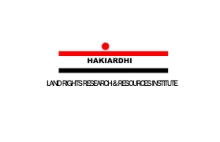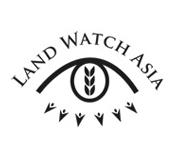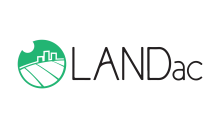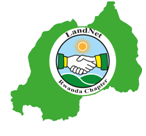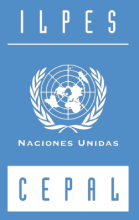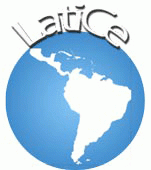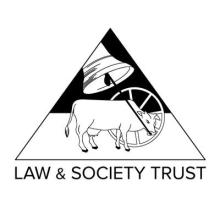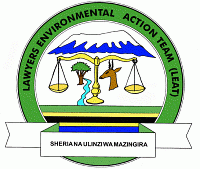The Land Library includes resources from more than 1,900 national and international information providers. Learn more about the organizations and institutions using the Land Portal to share their open-access research, data and stories.
Land Journal
Land (ISSN 2073-445X) is an international, scholarly, open access journal of land use and land management published quarterly online by MDPI.
Land Journal RICS
The Land Journal is published six times a year for members of the Rural, Geomatics, Minerals & Waste Management, Environment, and Planning & Development professional groups.
The journal emphasises the crossovers in these practice areas and their global nature, with articles contributed by experts from all over the world.
Current and recent issues of Land Journal can be downloaded below. Earlier archived issues can be obtained from our library (e library@rics.org).
https://www.rics.org/nl/news/journals/land-journal
Land Matrix
The Land Matrix is an independent global land monitoring initiative that promotes transparency and accountability in decisions over large-scale land acquisitions (LSLAs) in low- and middle-income countries across the world. The initiative actively collects information about land deals from publicly available sources (such as media, internet, research, contracts, and government and company websites), while partner organisations contribute through their own field research. A network of reporters (including civil society organisations, researchers, and practitioners) validate and collect additional information as well. The Land Matrix’s online open access platform strives to stimulate inclusive debate on the trends and impacts of such acquisitions, facilitate wide participation in collecting and sharing information about these deals, and contribute to the growing movement towards open data. In this way, the initiative aims to support greater public involvement in critical decisions that affect the lives of land-users and strengthen the positions of more vulnerable stakeholders in the political and administrative processes that govern access to land.
For more information about land deals and how data is captured, analysed, and used by the Land Matrix, please visit www.landmatrix.org
Land Observatory
The Land Observatory is a pilot project by some partners of the Land Matrix, designed to provide greater context and deeper insight on land deals, from a more local perspective.
We are co-creating software with partner organizations in pilot countries that will allow for them to
- generate greater spatial context for land deals
- make possible deeper investigation of the actors involved
- increase citizen participation, crowdsource and ground-truth data
- locally manage data on land deals
We are piloting this project in five countries - Cambodia, Laos, Madagascar, Peru and Tanzania, with civil society partners and governments who will work to open government data, crowdsource and help customize local observatories using our software.
The project is not merely technical, we are accompanying partners as they test different crowdsourcing strategies. Partners and their extended networks play a crucial role in bringing the online information to the real world, and back again.
Updated information on land will benefit citizens, but also governments and companies interested in sustainability.
Land Portal Foundation
The Land Portal is a Foundation registered in the Netherlands in 2014.
The vision of the Portal is to improve land governance to benefit those with the most insecure land rights and the greatest vulnerability to landlessness through information and knowledge sharing.
The goal of the Portal is to become the leading online destination for information, resources, innovations and networking on land issues. Through this it will support more inclusive and informed debate and action on land governance and will increase the adoption and up-scaling of best practices and emerging innovations on land tenure.
Read more about us and join the Land Portal now!
Land Reform, Land Settlement and Cooperatives
FAO's Journal on Land Reform, Land Settlement and Cooperatives was published between 1964 and 2009. Issues published between 1996 and 2009 are accessible below.
The successor of the Land Reform, Land Settlement and Cooperatives was launched in 2010. The new Land Tenure Journal aims to promote the latest knowledge in the technically, economically, politically and socially broad areas of land tenure.
Land Research Action Network
LRAN is the Land Research Action Network (LRAN), or Red de Investigación-Acción sobre la Tierra, which brings together activist researchers working on land and resource access issues, to network them with one another and with grassroots movements struggling for land and other productive resources. It’s members are committed, activist researchers, their organizations, and social movements fighting for access to land, for true agrarian reform, and for access to other productive resources.
LRAN is a response to a gap in research/analysis support for grassroots movements around the world who are engaged in struggles over access to land and other resources, even as various forms of so-called "land reform" are back on the policy agenda. For example, while institutions like the World Bank, which is actively promoting questionable ’market-led reform’ policies have ample support from the researchers and scholars they have on staff or that they fund in order to make their case to governments, the movements who come up against these policies are often without reliable analyses meeting their needs for engaging effectively in policy debates.
The purpose of LRAN, then, is to network researchers and analysts whose research and analysis would be useful to these movements, both with each other and with the movements themselves, and provide a mechanism of feedback so that their analyses address the needs of the movements, and are made available to them in a usable form.
LRAN was founded by, and is coordinated by, Food First/The Institute for Food and Development Policy, based in the USA, Focus on the Global South, based in Thailand, the Social Network for Justice and Human Rights (Rede Social de Justiça e Direitos Humanos), based in Brazil, and the National Land Committee, in South Africa.
Land Rights Now
To achieve our Goal, we are campaigning for an unprecedented mobilization of Indigenous Peoples and local communities, governments, intergovernmental organizations, corporate and other private sector actors, civil society, social movements, and citizens from all over the world. To realise the change we want, we ask that by 2020…
Land Rights Research and Resources Institute
The Land Rights Research & Resources Institute was founded in 1994 and registered as a non-governmental not-for profit company limited by guarantee under the Companies Ordinance, Chapter 212 of the laws of Tanzania.
The Institute was established out of the need to generate and sustain a public debate and participation, particularly where it matters in villages on issues of land tenure.
It is the institute’s belief that such debate will be better informed if. There is a recognition of indigenous systems of land tenure knowledge and experiences, a will and capacity to research into these and thus generate more systematic knowledge of the same; and an institutional arrangement independent of the state system to generalize local knowledge and experiences horizontally between and among village committees thereby producing a corpus of a truly national system of knowledge on land relations.
VISION
Land Rights Research and Resources Institute envisages a socially just and equitable land tenure system in which all groups in the society and especially the rural based small producers are guaranteed security of tenure, access and ownership to land and other means of their livelihood.
MISSION
HAKIARDHI's mission is to promote and ensure realization of the rights to land of about eighty percents of the rural based communities who are mainly small land holders and producers.
Land Tenure and Development Technical Committee
The ‘Land Tenure and Development’ Technical Committee is a working group composed of French Cooperation experts, researchers and decision-makers. Since its creation in 1996 it has worked in conjunction with numerous French and international actors to support the French Cooperation in developing strategies and supervising actions on land issues. In addition to the White Paper by French Cooperation actors (2009), it has produced an analysis of large-scale land appropriations (2010) and many other works and tools intended to improve our understanding and efforts to address the challenges associated with land issues in developing countries.
Full versions of all these outputs can be found on the ‘Land Tenure and Development’ portal (www.foncier-developpement.fr), which the Committee set up to provide access to accurate and up-to-date information on the sector.

Land Tenure Center, University of Wisconsin-Madison
MISSION
We build partnerships to synergize and sustain excellence in the interdisciplinary research, teaching, and service that make the University of Wisconsin-Madison a world leader in addressing environmental challenges.
VISION
We strive to create sustainable communities across complex institutional landscapes for enhancing the quality of life and the environment in Wisconsin and the world.
CORE VALUES
The Nelson Institute:
- facilitates and promotes interdisciplinary scholarship that aims to understand and address societal problems related to environment and sustainability.
- values and is committed to a liberal arts and professional education, built on the premise that complex environmental issues can best be understood through familiarity with diverse perspectives, and integration of the natural sciences, social sciences, and humanities.
- values and is committed to fostering and sustaining community partnerships in education, research, and service at the local to international levels.
- acts as a catalyst and model for interdisciplinary collaboration on environmental initiatives across departments, schools, and colleges, and including governmental, private, and non-profit entities.
Land Tenure Journal
The Land Tenure Journal, launched in early 2010, is a successor to the Land Reform, Land Settlement and Cooperatives, which was published between 1964 and 2009. The Land Tenure Journal is a medium for the dissemination of quality information and diversified views on land and natural resources tenure. It aims to be a leading publication in the areas of land tenure, land policy and land reform. The prime beneficiaries of the journal are land administrators and professionals although it also allows room for relevant academic contributions and theoretical analyses.
Land Use and Land Cover Change Project
Background
The pace, magnitude and spatial reach of human alterations of the Earth's land surface are unprecedented. Land use and land cover change directly impacts biotic diversity worldwide, contributes to climate change, is the primary source of soil degradation, and, by altering ecosystem services, affects the ability of biological systems to support human needs. Such changes also determine, in part, the vulnerability of places and people to climatic, economic or socio-political perturbations. LUCC research addresses the problem of land use dynamics through comparative case study analysis, addresses land cover dynamics through empirical observations and diagnostic models, and extends the understanding of cause-use-cover dynamics through integrated regional and global modeling. LUCC was co-sponsored by IHDP
LUCC Objectives
To develop a fundamental understanding of the human and biophysical dynamics of land-use changes ad the impacts of these changes on land cover.
To develop robust and regionally sensitive global models of land-use/cover change with improved capacities to predict and project use/cover changes
To develop an understanding of land-use/cover dynamics through systematic and integrated case studies.
To assist in the development of a global land-use classification scheme LUCC was completed in 2005.
Land Use Change, Impacts and Dynamics
The main objective of the network is to stimulate research on land use and global change in east Africa by bringing together experiences from different long term research sites to bear on common regional research themes associated with land degradation and conservation of biodiversity in the context of sustainable livelihoods.
Land Use Policy
Land Use Policy is an international and interdisciplinary journal concerned with the social, economic, political, legal, physical and planning aspects of urban and rural land use. It provides a forum for the exchange of ideas and information from the diverse range of disciplines and interest groups which must be combined to formulate effective land use policies. The journal examines issues in geography, agriculture, forestry, irrigation, environmental conservation, housing, urban development and transport in both developed and developing countries through major refereed articles and shorter viewpoint pieces.
Land Use Policy aims to provide policy guidance to governments and planners and it is also a valuable teaching resource.
ISSN: 0264-8377
Land Watch Asia
Land Watch Asia (LWA) is a regional campaign to ensure that access to land, agrarian reform, and sustainable development for the rural poor are addressed in national and regional development agenda. The campaign involves civil society organizations in seven countries – Bangladesh, Cambodia, India, Indonesia, Nepal, Pakistan, and the Philippines. It aims to take stock of significant changes in land policy; undertake strategic national and regional advocacy activities on access to land; jointly develop approaches and tools; and encourage the sharing of experiences of coalition-building and actions on land rights issues.
LANDac
LANDac, the Netherlands Academie on Land Governance for Equitable and Sustainable Development, is a partnership between Dutch organizations working on land governance. The partners are the International Development Studies (IDS) group at Utrecht University (leading partner), African Studies Centre, Agriterra, the Sociology of Development and Change (SDC) group at Wageningen University, the Land Portal Foundation, HIVOS, the Royal Tropical Institute (KIT), the Netherlands Ministry of Foreign Affairs, and Enclude Solutions. LANDac is one of the IS-Academies, a series of programs sponsored by the Ministry of Foreign Affairs, to improve and strengthen linkages between academia and development practitioners in the field of international cooperation (IS Academies for International Cooperation)
LANDac aims at bringing together researchers, policy makers and development practitioners in the field of land governance and development. The LANDac network conducts research, brings together actors and distributes information, focusing on new pressures and competing claims on land and natural resources. LANDac studies the impact of large-scale land deals in agriculture for food production andf biofuels, urbanization, tourism; and the role of land laws, reforms, regulations, and voluntary guidelines and principles, in dealing with new pressures. LANDac has six PhD research projects and several related PhDs; moreover, 17 short-term research projects have been carried out in collaboration with Southern partners.
Mission
LANDac, the IS Academy on Land Governance for Equitable and Sustainable Development, aims at bringing together researchers, policy makers and practitioners in the field of land governance and development.
Land Governance for Equitable and Sustainable Development
LANDac is a partnership between several Dutch organisations and their Southern partners involved in development-related research, policy and practice. The partners share a concern for increasing land inequality and new land-related conflicts, and how land governance – rules and practices on access to land – can be used to promote equitable and sustainable development in the Global South.
LANDac is one of the IS Academies for International Cooperation sponsored by the Netherlands Ministry of Foreign Affairs.
LandCam
Pendant cinq ans, LandCam collaborera avec les principales parties prenantes à travers le Cameroun pour améliorer les droits coutumiers et officiels liés à la terre et aux ressources naturelles en conduisant au niveau local des initiatives innovantes pour une meilleure gouvernance foncière, et en contribuant aux réformes pratiques des politiques en la matière. Nous créerons de nouveaux espaces pour un dialogue et une réflexion mieux informés, plus efficaces et plus inclusifs, en y associant le public et les médias, ainsi que les plateformes de la société civile. Nous suivrons également les changements sur le terrain et les réformes juridiques, et partagerons les enseignements au niveau national et international.
Landesa - Rural Development Institute
About Landesa
Landesa partners with governments and local organizations to ensure that the world’s poorest families have secure rights over the land they till. Founded as the Rural Development Institute, Landesa has helped more than 105 million poor families gain legal control over their land since 1967. When families have secure rights to land, they can invest in their land to sustainably increase their harvests and reap the benefits—improved nutrition, health, and education—for generations.
LandNet Rwanda
LandNet is an Africa-wide network that brings together policy makers, academics and civil society (on a round table) to work on land related issues. These issues are especially related to land reform and land policy implementation, including land dispute management and mitigation. The Rwanda Chapter of LandNet Africa was officially launched on 21st September 2000.
LandNet Rwanda Chapter is the first and the only network in Rwanda that deals with land issues. It is therefore viewed by various actors as a major opportunity in Rwanda in strengthening the capacity of civil society to engage in policy issues, as the best way towards sustainable development.
Mission
The mission of LandNet Rwanda Chapter is: “to contribute to equitable and sustainable land reform through inclusive actions and processes”.
Objectives
The goal of LandNet Rwanda Chapter is to build and strengthen the capacity of the Rwandan civil society to be able to engage and dialogue with Government, local leaders and donors on land policy and mainstreaming land issues in the Economic Development and Poverty Reduction Strategy (EDPRS) of the Government of Rwanda.
Landscape Finance Lab
Established in April 2016, the Lab is incubating a portfolio of landscape programs. We are focused exclusively on programs covering over a million hectares, million tonnes of traded goods, million tonnes greenhouse gases, and $100 million investment size.
Our purpose is to:
Enable high quality landscape programs in global biodiversity priority places – using jurisdictional REDD+, land degradation neutrality, catchment management and landscape sourcing approaches.
Test innovative financing mechanisms – including private sector investment funds, impact investing platforms and public sector grant funding windows.
Build sector learning, capacity and impact. We are growing a global online learning community and producing tools, guidance and learning publications for them
Landscope
Landscope is offered completely free of charge, but by using it, you are agreeing to abide by our terms of use. This website has important terms of use and disclaimers that you or your legal staff need to know about. View them by clicking here.
If this is your first time using Landscope, you can watch a very short video by clicking here.
Landscope is a system for measuring tenure risk, a term we created to describe the financial risk associated with local opposition to a real asset. This kind of opposition to investments is very common across Africa, Asia and Latin America, often causing significant financial losses and operational headaches.
Over the last seven years, we have looked at over 600 cases of tenure dispute in detail to inform the development of Landscope. The system applies a new approach to analyzing geospatial data about social, environmental and political issues that is designed to help companies and investors in emerging and frontier markets to prepare a proper assessment of tenure risk at project, supply chain or portfolio level.
Landscope isn’t going to replace expert insight, and it won’t eliminate the need to invest time and money to understand the human factors that impact your assets’ performance. But it will help you to structure that process, rationalize its cost against potential losses and make your due diligence more efficient and effective.
We don’t assert that Landscope is a perfect product. And because we are releasing it for general use free of charge, we have a real interest in improving it. If you see something wrong – or even if you receive a result you just don’t agree with – we want to know right away. Email us at landscope@tmpsystems.net or use our Contact page.
Latin American and Caribbean Demographic Centre
Also known as: Centro Latinoamericano y Caribeño de Demografía
The mission of ECLAC in the area of population and development is to increase and enhance the ability of the region’s countries to describe, analyse, comprehend and address population dynamics and their links to economic and social development, with a view to incorporating demographic factors into public policies and programmes, especially those aimed at reducing poverty and inequality. To achieve its strategic objective, the Division has received extensive support from organizations of the United Nations system, especially the United Nations Population Fund (UNFPA), and other donors.
The Latin American and Caribbean Demographic Centre (CELADE), which has been the Population Division of ECLAC since 1997, focuses on three areas: requests for assistance at the national level; regional issues (in particular the marked social, economic, ethnic and gender inequalities); and international agreements, principally the Programme of Action of the International Conference on Population and Development, the Montevideo Consensus on Population and Development, the Madrid International Plan of Action on Ageing, the San José Charter on the Rights of Older Persons in Latin America and the Caribbean and the Millennium Development Goals, which seek to improve people’s living conditions by enforcing their rights.
CELADE-Population Division of ECLAC, within the framework of the existing links between population and development, will continue to give priority to the following issues from a gender and human-rights perspective: determinants and consequences of demographic trends; sociodemographic inequities; maternal and child mortality; fertility and reproductive health; youth; ageing and older persons; indigenous peoples and Afro-descendent populations; international and internal migration; urbanization; sources of sociodemographic information (population censuses and vital statistics); and human resources training in the fields of demography and population and development.
A look back over the Centre’s history shows that the majority of professionals working on population issues in the region have passed through the classrooms of CELADE at one time or another, while all of the nations of Latin America and the Caribbean, as well as some from Africa and Asia, have received technical advisory missions composed of CELADE staff. It is clear that the research carried out by CELADE has substantially added to the corpus of knowledge on population and development issues in Latin America and the Caribbean.
Latinoamérica en el centro
La asociación LatiCeTiene un grupo de trabajo permanente cuyos miembros provienen o bien de Suecia o de América Latina.
Tenemos la ambición de seguir colaborando con organizaciones de América latina, e incluso de ampliar nuestra red amiga, de dar a conocer la actividad, los logros y los problemas que enfrentan estas organizaciones.
LatiCe busca colaboradores interesados en escribir artículos sobre las áreas de interés de nuestra asociación. Los interesados pueden contactarse con nosotros enviando un correo a nuestra dirección de contacto : info@latice.org
Latvia University of Agriculture
The Latvia University of Agriculture (LLU) Strategic Development Plan 2010-2016, was developed during 2009 and approved by the LLU Senate on June 10, 2009.
In order to perform its functions and implement its goals and objectives, the Latvia University of Agriculture has developed three activity programs:
1. Studies
2. Science
3. Administrative and financial support for studies and research work
The goal of the Latvia University of Agriculture is to provide the possibility to obtain higher academic and higher professional education in agriculture, veterinary medicine, food technology, engineering, forestry science, social science, information technologies and environment management sectors as well as to develop science and to maintain and develop the Latvian intellectual potential and culture.
The objectives of the LLU:
To ensure the study quality corresponding with the standards of a national university what would allow to educate competitive specialists for the Latvian and international labor markets.
To develop the scientific potential to participate in international research, to integrate the academic education and research what would ensure introduction of innovative, knowledge - based technologies into the Latvian national economy, specially, in the Zemgale region.
To ensure sustainable development for the university as a national education, science and culture institution:
to strengthen the legal basis;
to improve the organizational structure in accordance
to the LLU objectives;to develop cooperation with institutions, academic education and science institutions in Latvia and abroad, enterprises and professional organizations and regional institutions of Zemgale;
to manage the LLU material and technical basis effectively.
The LLU mission
To develop the intellectual potential for sustainable future of Latvia and especially rural areas.
The LLU vision
To become a modern, internationally recognized and prestige university, taking part in the common European academic education and science space.
Latvia University of Life Sciences and Technologies
The Latvia University of Life Sciences and Technologies (until March 6, 2018 – Latvia University of Agriculture (LLU); Latvian: Latvijas Lauksaimniecības universitāte; LLU) is a university in Jelgava, Latvia, specializing in agricultural science, forestry, food technology and related areas.
Law & Social Inquiry
Law & Social Inquiry (LSI) is a multidisciplinary quarterly publication of original research articles and review essays that analyze law, legal institutions, and the legal profession from a sociolegal perspective. LSI contributors examine law-and-society issues across multiple disciplines, including anthropology, criminology, economics, history, philosophy, political science, sociology and social psychology. The journal’s combination of empirical and theoretical scholarship and critical appraisal of the latest sociolegal scholarship makes LSI an indispensable source for legal scholars and practitioners.
Law & Society Trust
The Law and Society Trust (LST) is a legal research and advocacy organisation founded in 1982 in Colombo, Sri Lanka by the late Dr. Neelan Tiruchelvam. Our goals are the promotion of legal reforms for access to justice, justiciability of rights, and public accountability
Lawyers’ Environmental Action Team
The Lawyers' Environmental Action Team (LEAT) was established to ensure Tanzania's environment and natural resources are sustainably managed.
Their mission is to enhance the capacity and participation of the people in sub-Saharan Africa to sustainably manage their natural resources and environment through legal, policy and other strategic interventions.
LEAT’s major activities are conducting legal and social-policy research, advocacy work, public interest litigation and giving legal advice.
The issues they work on include: environment law, sustainable environmental management, human rights, sustainable natural resources utilization, management and conservation, governance of natural resources and mining issues.









